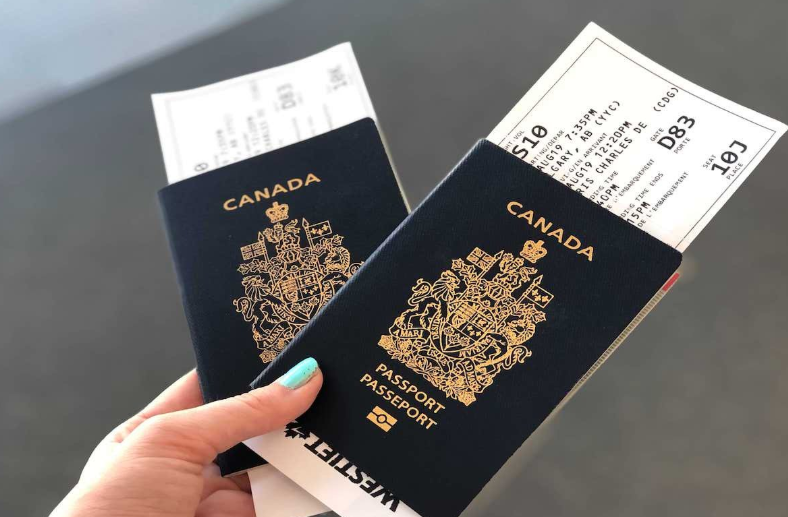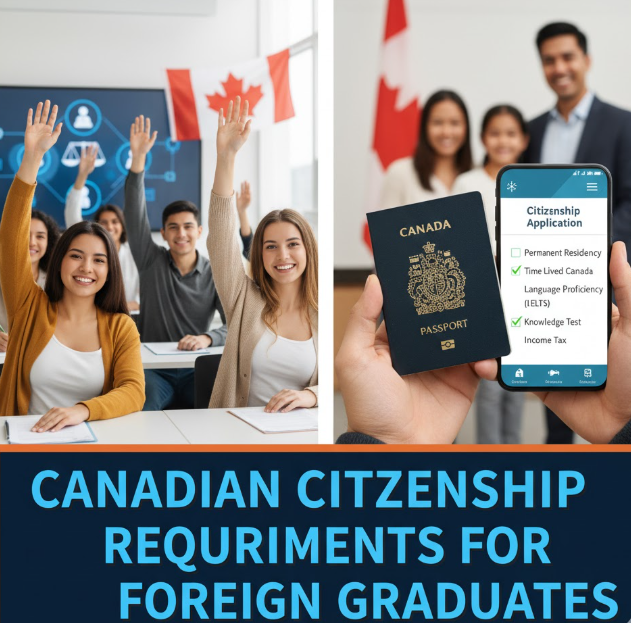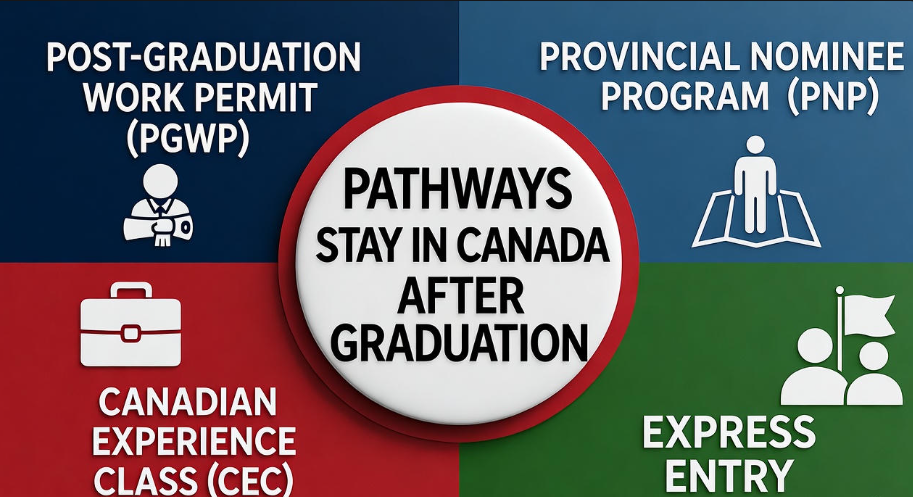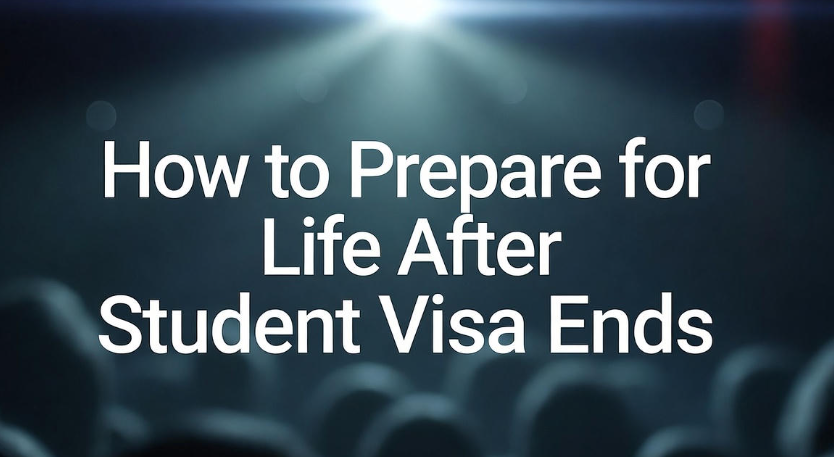So you’ve completed your studies in Canada and are now considering transitioning to life here on a permanent basis. Becoming a Canadian citizen is a huge step, and if you are an international graduate, you may be asking what it takes to do so. The good news? In reality, by being a student in Canada you are ahead of the game. Below, we’ll walk you through everything you need to know about the process of making your student life full-on citizenship.
Why Foreign Graduates Have an Edge
When you graduate school in Canada, you’re not starting from zero. In fact, the Canadian government wants international students to stay, become permanent residents and eventually citizens. This is how you can think of it: You know you can make it in Canada, understand the culture and have some work experience here. That’s valuable.
International grads gain access to special programs, such as the Post-Graduation Work Permit (PGWP), which allows you to work in Canada after completing school. This work experience is absolutely crucial when you apply for permanent residence, which is the big step before citizenship.
The Whole Way to Student to Citizen
Although we do not pledge to become a “Canadian” when becoming citizens there, the process isn’t a one-step “thing,” more like climbing rungs on a ladder. Here is what that ladder looks like:
Step 1: Graduate and Obtain Your Work Permit
Following graduation, you may be able to apply for a Post-Graduation Work Permit. This visa allows you to work anywhere in Canada for as long as three years, depending on the length of your program. If you studied for two years or more, you receive the full three-year work permit. This is your ultimate golden ticket to get Canadian work experience.
Step 2: Work in Canada to Gain Experience
As you work on your PGWP, however, you’re also gaining something key: skilled work experience in Canada. Most immigration programs are interested in your ability to hold a job down and contribute to the Canadian economy. Do aim for a paying job in your field of study — it makes your application stronger later on.
Step 3: Become a Permanent Resident
This is the big one. You’re not eligible to apply for citizenship until you are a permanent resident. There are no shortcuts developed for this process. Graduates of foreign schools usually apply through one:
Express Entry System – This is the most common route. It includes three programs:
- Federal Skilled Worker Program
- Canadian Experience Class (great for students who have study AND work experience in Canada)
- Federal Skilled Trades Program
Provincial Nominee Programs (PNPs): Every province has its own way of inviting people to become permanent residents. Many provinces have dedicated streams specifically for international graduates.
Step 4: Reside in Canada as a Permanent Resident
There is another requirement of living in Canada once you obtain permanent residence. The citizenship rules do not tolerate this. You need to be in Canada for at least 1,095 days (or 3 years) out of the 5 years before you apply for citizenship.
Here’s one important thing: your time as a student matters, but only up to a point. You get credit for half a day in Canada as a student or temporary worker before you became a permanent resident; the maximum amount of time (one year) is 365 days. So if you spent four years studying in Canada, two of those years can be counted to fulfill your citizenship requirement.
Step 5: Apply to Become a Canadian Citizen
You can then finally apply for citizenship once you have met the residence requirement. But there are additional requirements beyond just residing here.
What Exactly You Need To Look Forward To
Let’s dissect every single requirement you must hope to tick off before you can become a Canadian citizen.
Physical Presence Requirement
| Time Period | Days Required | Student/Worker Credit |
|---|---|---|
| Last 5 years | 1,095 days (3 years) | Yes; half credit up to 365 days |
| Per calendar year | No minimum | No requirement |
| Must meet total | 1,095 days | – |
For five years immediately before you apply, you must be physically present in Canada for at least 1,095 days. The government does not round up — 1,094 days doesn’t work. They will request that you provide a list of every trip you made outside Canada at this stage.
Permanent Resident Status
You need to be a permanent resident when you apply, and when you take the oath of citizenship. If your PR card expires while you are waiting for naturalization, that’s fine — however you will still want to renew it to avoid issues later.
Tax Filing Requirement
You need to have filed taxes in Canada, you must have done so for at least three out of the last five years. This is where the fact that you are a student comes in handy — if you weren’t required to file taxes during them, those years do not count against you.
As a young professional working in Canada, be sure to file your taxes each year, even if you don’t owe anything. It provides a paper trail that shows you were here, you contributed to society.
Language Skills
You must demonstrate that you can speak and listen in English or French. The government wants to ensure that you can speak one of Canada’s official languages with at least some degree of proficiency. For most people, this means:
- CLB 4 for English and NCLC 4 for French
For graduates, there is good news: if you graduated from an English- or French-speaking school in Canada, a transcript or diploma can typically be used as evidence. You may not need to take a separate language test.
-
Looking for free funding? Learn how to get scholarships to study in Canada — Read more
Knowledge of Canada
You will have to write a citizenship test based on Canadian history, values, institutions and symbols. The test has 20 questions and you need to get at least 15 right (75%) to pass.
The government offers a study guide, “Discover Canada: The Rights and Responsibilities of Citizenship,” for free. The entire test is based on this guide. If you’ve lived in Canada as a student, chances are high that much of this is already familiar to you from everyday life.
Age Requirements
If you’re between the ages of 18 and 54, you must pass the citizenship test and meet the language requirement. If you are either under 18 or over 54, you don’t have to take the test or prove language skills (though minors must also have a parent or guardian who is citizen or applying for citizenship at the same time).
Criminal Record Check
You’ve got to show that you’re not guilty of serious crimes. Canada will conduct a background check and if you have certain criminal convictions you may be ineligible for citizenship. They examine Canadian and international criminal history.
Minor offenses, such as parking tickets, won’t affect your application, but serious infractions will. You cannot apply if you’re subject to a removal order or have certain criminal charges pending.

Programs That Help International Graduates
There are a number of programs specifically designed to support international graduates in moving between temporary and permanent status:
Express Entry: Canadian Experience Class
This is intended for those who have Canadian work experience. To qualify:
- You must have at least 1 year of full-time, skilled work experience in Canada
- Your employment is in an occupation categorized as TEER 0, 1, 2 or 3 categories
- You must have acquired such an experience legitimately (on a work permit)
- You must meet the language requirements
International graduates with work experience gained through their PGWP are ideal candidates.
Provincial Nominee Programs
Virtually every province has its own special streams for international graduates:
| Province | Program Name | Major Advantage |
|---|---|---|
| Ontario | Ontario Immigrant Nominee Program (OINP) | Masters and PhD graduate streams |
| British Columbia | BC Provincial Nominee Program | International graduate stream |
| Alberta | Alberta Advantage Immigration Program | International graduate category |
| Manitoba | Manitoba Provincial Nominee Program | International Education Stream |
| Saskatchewan | Saskatchewan Immigrant Nominee Program | International Skilled Worker – Saskatchewan Express Entry |
These programs may have lower requirements than the federal ones and could allow you to fast-track your permanent residence application.
Atlantic Immigration Program
Did you graduate from a school in Nova Scotia, New Brunswick, Prince Edward Island or Newfoundland and Labrador? You may be eligible for the Atlantic Immigration Program. This program has a unique international graduate stream that has much lower requirements compared to other streams.
How Long Does Everything Take?
Let’s be realistic about timelines. It’s not a fast track to Canadian citizenship starting on graduation day:
- Studies: 2-4 years (the second you start on this journey)
- Post-Graduation Work Permit: Up to 3 years, issued within months of graduation
- Work & Experience: 1-2 years (for Express Entry or PNP)
- Processing time for Permanent Residence application: Average 6-12 months, depending on the program
- Residency as a permanent resident (before application for citizenship): 3 years physical presence in Canada (minus a maximum of 1 year credit for time spent in Canada as a student)
- Processing time for citizenship applications: 12-24 months now
Total Time from Graduation to Citizenship: 5-8 years (est.)
This may sound like a long time, but don’t forget — that time you spent at university counts for something and while you wait in Canada, you’re starting to build a life there.
What Your Application Costs
Budget is important. Here’s what you’ll pay:
Permanent Residence Fees:
- Application fee: $850 CAD
- Right of Permanent Residence fee: $515 CAD
- Biometrics: $85 CAD
- Medical exam: $200-450 CAD
- Police certificates: Varies by country
- Total: Approximately $1,700-2,000 CAD
Citizenship Application Fees:
- Adult 18 or over: $630 CAD (this is the total, including processing fee and right of citizenship fee)
- Total: $630 CAD
Total Cost: Approximately $2,330-2,630 CAD for the entire process from permanent residency to citizenship.
Common Mistakes Foreign Graduates Make
Save yourself months – or years – by learning from other people’s mistakes:
Not Tracking Your Days Carefully
The largest mistake is not maintaining detailed records of when you came and left Canada. The government will ask for exact dates. Begin a spreadsheet today of every trip you take outside Canada — the reason for the trip, how long you were gone and where did you go. Border officers don’t always stamp the passports anymore, so hang onto boarding passes, hotel receipts or some other evidence of the travel.
Applying Too Early
If you apply for citizenship with less than 1,095 days, your application is denied and you lose your application fee. Count your days several times using the online calculator on the government website.
Forgetting About Tax Returns
Some new graduates do not know they need to file taxes even if their income was low or no money is owed. File every year, even if you don’t think you need to. This is far, far more difficult to repair in hindsight.
Not Updating Your Address
If you change addresses and do not notify Immigration, Refugees and Citizenship Canada (IRCC), you may miss important mail about your application. Keep your address up to date within 10 days after you have moved into a new location.
Leaving Canada During Processing
You can travel outside Canada while your citizenship application is processing. But if you’re out of Canada when they book your citizenship test, or oath ceremony and you miss it, there will be delays. Restrict travel as much as you can in the last weeks.
Special Situations for International Graduates
Married to a Canadian Citizen
While being married to a Canadian citizen doesn’t necessarily qualify you for citizenship, it might help you become a permanent resident (and eventually get your citizenship) faster by applying through spousal sponsorship. After you achieve permanent resident status, the regular citizenship rules apply — regardless of how long you’ve been in Canada; you still need to fulfill the 1,095-day physical presence.
Break in Studies
Some students complete breaks or work co-op terms while studying. This is fine. All that matters is how much time you have spent in Canada overall (not whether it was continuous).
If You Studied Online
Studying online while outside of Canada does not count toward your physical presence requirement. You only count those days when you were physically present in Canada. It was a problem at the time of COVID-19, when so many students were learning remotely.
If You Want to Retain Your Original Citizenship
Canada allows dual citizenship. You don’t have to renounce your original citizenship to become Canadian (unless where you come from doesn’t allow dual citizenship—check their requirements).
How to Strengthen Your Application
In addition to fulfilling the requirements, there are things you can do to further strengthen your application:
Create a Strong Network: Volunteer, connect with community organizations and participate in local events. You don’t have to, but it’s another sign you’re part of Canadian society.
Keep Excellent Records: Save all of it — pay stubs, tax returns, lease contracts, utility bills, school transcripts. These papers show that you were living in Canada.
Don’t Lose Legal Status: Don’t let your status expire. If your work permit is expiring, apply to extend it or for another status before it expires.
Learn About Canada: Even before you become a Canadian citizen, learn about Canadian history, politics and culture. It gets you acclimated and ready for the test.
Participate In Your Professional Community: Join professional societies in your industry, go to networking events, and grow your career. That shows that you’re contributing to the economy of Canada.
What Happens After You Apply
Here’s what you can expect once you submit your citizenship application:
- Receipt Notification: You will receive an acknowledgement weeks after they have received your application.
- Background Checks: They check on everything you told them — criminal record, travel history, tax returns
- Test Invitation: If you are 18-54, you will be invited to take the test online or in person
- Interview: Some candidates may be interviewed by a citizenship officer
- Decision: You’ll be notified if you’re approved or they need more information
- Oath Ceremony: The last and the official step of becoming a Canadian
The oath ceremony is special. You’ll swear an oath to Canada and receive your certificate of citizenship. Bring a Canadian flag — there’s usually a celebration afterward.
Your Rights and Responsibilities as a Canadian Citizen
When you become a citizen, you acquire new rights that even permanent residents do not have:
Rights:
- Participate in federal, provincial and local elections
- Run for political office
- Get a Canadian passport
- Never lose status (permanent residents can lose status; citizens cannot)
Responsibilities:
- Obey Canadian laws
- Respect others’ rights and freedoms
- Help others in the community
- Protect Canada’s heritage and environment
- Participate in democracy by voting

Canadian Citizenship Requirements for Foreign Graduates
Frequently Asked Questions
Can I get citizenship while my permanent residence is pending?
No. Before you can apply for citizenship, you must be a permanent resident. There is no way to avoid this step, or merge the applications.
Do I have to hire a lawyer to apply for citizenship?
No, you don’t need a lawyer. The process is simple assuming you qualify for everything. Still, if you have some kind of complex situation — a criminal record, you have gaps in your documentation or were denied before — a lawyer or immigration consultant may be able to help.
What if I fail the citizenship test?
You get a second chance. If you fail it twice, your application could be rejected, but you can apply again later. It’s not a particularly tricky test — know the manual and you’ll pass.
May I travel while my application for citizenship is in process?
Yes, you can leave Canada while your application is being processed. But you will have to be in Canada for your test and oath ceremony. If you travel and miss these appointments, it will slow your application.
How can I show that I was in Canada for my period of study?
It helps if you have a school transcript demonstrating that you were enrolled in school. And hold onto old leases, bank statements, phone bills — anything dated that proves you were in Canada. Keep those pay stubs if you were a student working part-time.
What happens if I lose my PR card before I become a citizen?
Get a new one right away. You have to hold PR status at the time of application for citizenship and at the time you take your oath. A lost or expired card isn’t a sign you lost your status, but you should replace it.
Will studying in French help my application?
If you studied in French while attending school in Canada, you can use that to show your French abilities for citizenship. Canada is committed to bilingualism and French speakers are given a leg up in many immigration programs.
Can I be denied citizenship if I am fully qualified?
Yes, though it is rare if you actually fulfill all of the requirements. You may be denied if you have: given false information, very serious criminal problems, are being sought for an investigation or there are issues about your time in Canada. If denied, you will get a letter telling you why.
What is the length of time for taking the citizenship test?
The test is 20 multiple-choice and true-false questions. You have half an hour to do it, and that’s plenty of time. You need to score at least 15 out of 20 (75%) in order to pass.
What should I bring to my citizenship test?
Bring your PR card, 2 pieces of identification, your notice to appear for the test and any items requested from you specifically. Do not take bags, phones or study material into the test room.
Final Thoughts: Your Way to Canadian Citizenship
Yes, you can become a Canadian citizen as an international graduate. Yes, it takes years and you need to be patient, but thousands of students in your shoes do it every year. Your Canadian education already puts you ahead of the game — you know the culture, you have Canadian credentials and very likely a network.
The trick is to begin planning early. Don’t wait until your work permit is nearing expiration to consider permanent residence. Never assume that you have enough days for citizenship without carefully verifying. Maintain accurate records, file your taxes and keep up with all your paperwork.
Canada is looking for skilled, educated individuals to help grow its economy and enhance its society. As an international graduate you’re exactly the kind of person Canada would like to attract and keep. It is a clear path with straightforward requirements, and the reward — full Canadian citizenship with all its rights and opportunities — more than justifies the journey.
Begin now to prepare, work and walk toward your goal. Count your days, gather your papers, find out which permanent residence program suits you and keep building a life in Canada. Before you know it, you’ll be at your citizenship ceremony, swearing the oath, and officially Canadian.
Welcome home.




